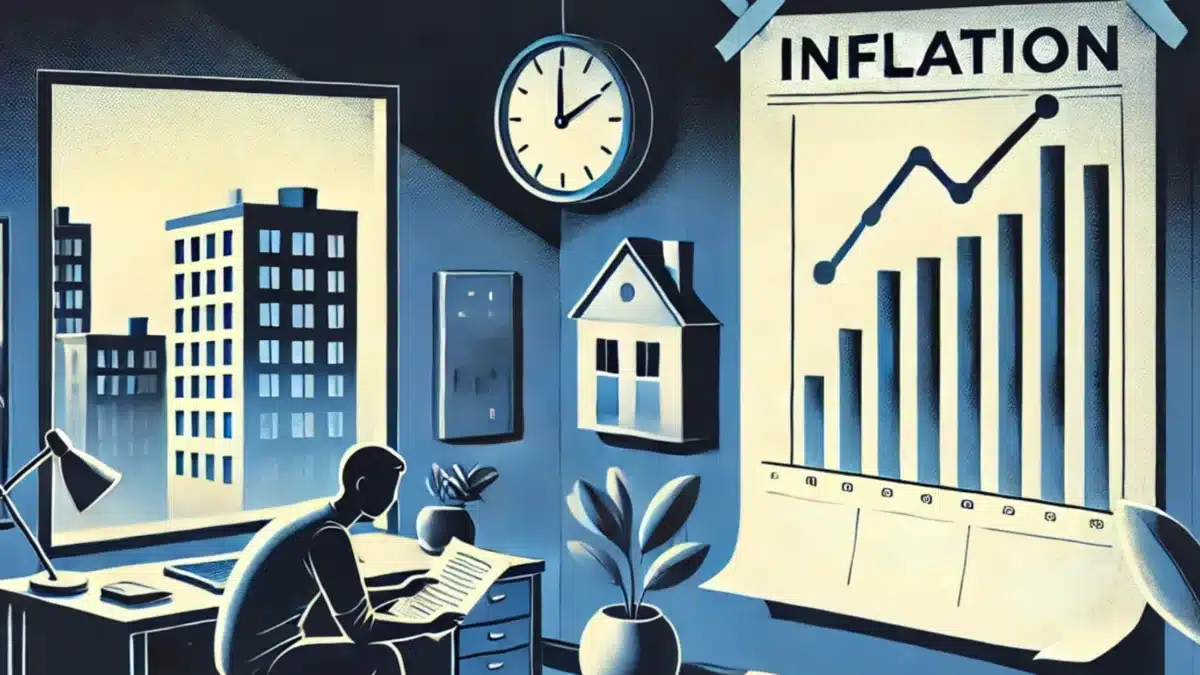
Emergency Rental Assistance Programs in 2025: Are They Legit?
November 29, 2024
The TikTok Effect: Viral Housing Tips That Could Be Risky
December 5, 2024Inflation has been dominating the news, and its ripple effects are being felt everywhere, including the affordable housing market. For renters relying on programs like Section 8 or those searching for low-cost housing options, rising costs can make an already challenging process even harder. At Section 8 Shield, we’re here to help renters like you understand how inflation affects affordable housing and how to navigate these changes.
How Inflation Impacts Affordable Housing
Inflation occurs when prices for goods and services rise, reducing the purchasing power of money. In the housing market, this means higher rents, increased construction costs, and tighter budgets for housing assistance programs. These factors are making it harder for many renters to secure affordable housing.
For example:
- Rising Rents: Landlords are raising rents to keep up with their own increased costs, from property taxes to maintenance.
- Limited Availability: Fewer affordable housing units are being built because construction costs, like materials and labor, have skyrocketed.
- Strained Assistance Programs: Programs like Section 8 are under pressure, with funding not always keeping up with demand.
Jessica P.
Renter in California.Why Are Rents Rising So Quickly?
Rents often rise during inflation because landlords face higher costs themselves. Property taxes, utility costs, and insurance rates all tend to increase during inflationary periods, and those costs get passed down to renters.
Additionally, housing shortages in many areas give landlords leverage to charge more. This is especially true in urban centers where demand for affordable housing far exceeds supply. According to the U.S. Department of Housing andUrban Development (HUD), housing shortages are a growing problem nationwide.
How Inflation Impacts Section 8 and Other Programs
Affordable housing programs like Section 8 are designed to help renters cover the gap between their income and market rents. However, inflation can strain these programs in several ways:
- Reduced Purchasing Power: As rents increase, vouchers may not cover as much of the rent as they used to, leaving renters to pay a larger share.
- Longer Waiting Lists: More people apply for assistance during times of economic hardship, increasing competition for already limited resources.
- Funding Challenges: Federal and local budgets may not adjust quickly enough to meet rising needs, leaving programs underfunded.
If you’re on a waiting list or currently using a voucher, it’s essential to understand how these changes might affect you. Learn more about navigating these challenges in our article, Section 8 Application Denied? Understand How to FightBack.
Strategies for Renters During Inflation
Navigating the housing market during inflation can be tough, but there are steps you can take to protect yourself:
| Research Your Local Market | Compare rents in your area and look for less competitive neighborhoods. Tools like Section 8 Search Affordable Housing Locator can help you identify available units. |
| Budget Carefully | Prioritize your housing costs and look for areas in your budget where you can save. Remember that securing stable housing is often worth the trade-offs. |
| Apply for Assistance Programs | Even if you don’t qualify for Section 8, other local or state-level programs may offer rental assistance. Check out your state housing authority for more resources. |
| Negotiate With Landlords | If you’re a long-term tenant, talk to your landlord about avoiding a rent increase. Some landlords may be willing to negotiate to keep a reliable tenant. |
| Stay Informed | Follow housing news and updates about funding for affordable housing programs. At Section 8 Shield, we regularly update renters on rental assistance program changes. |
The Role of Government in Combating Inflation’s Effects
Federal and state governments play a key role in addressing the challenges inflation brings to affordable housing. Here are some ways they’re working to help:
- Increased Funding for Housing Assistance: Programs like Section 8 often receive additional funding during economic downturns. Check HUD’s website for updates.
- Rent Control Policies: Some cities have introduced rent control measures to limit how much landlords can increase rents.
- Affordable Housing Initiatives: Many states are investing in affordable housing construction to increase the supply of units.
If you’re unsure whether these measures apply to you, contact your local housing authority or explore government resources like the Federal Trade Commission’s advice for renters.
How Section 8 Shield Supports You
At Section 8 Shield, we understand how overwhelming these changes can feel. That’s why we offer tools and resources to help renters like you navigate the housing market. Explore articles like How to Report Housing Scams to stay informed.
We also recommend checking out How to Avoid Rental Scams to avoid falling victim to scams during your housing search.
Looking Ahead: The Future of Affordable Housing
While inflation has created challenges, there is hope. Governments, non-profits, and community organizations are working to address the housing crisis by investing in new construction and expanding assistance programs. Renters like you can stay informed, advocate for change, and take proactive steps to secure stable housing.
David R.
Renter in TexasAt Section 8 Shield, we’re here to guide you through these uncertain times. Keep exploring our website for more tools and articles to support your housing journey. Together, we can overcome the challenges of inflation and secure a brighter future for renters everywhere.




